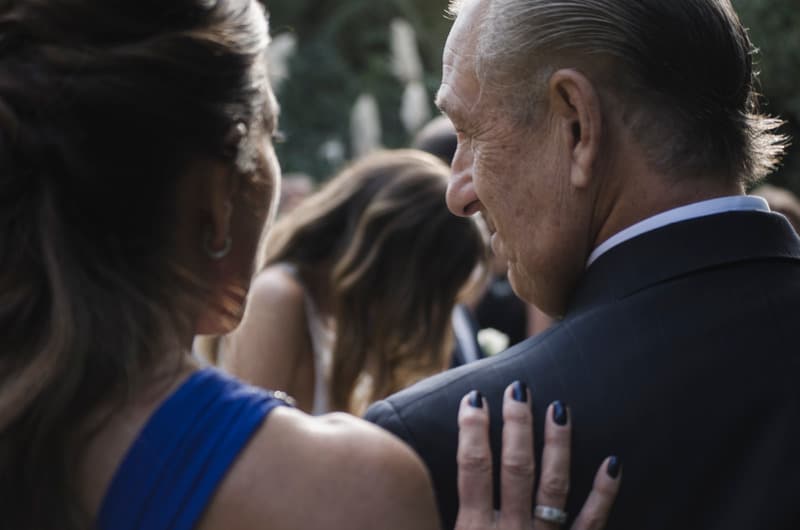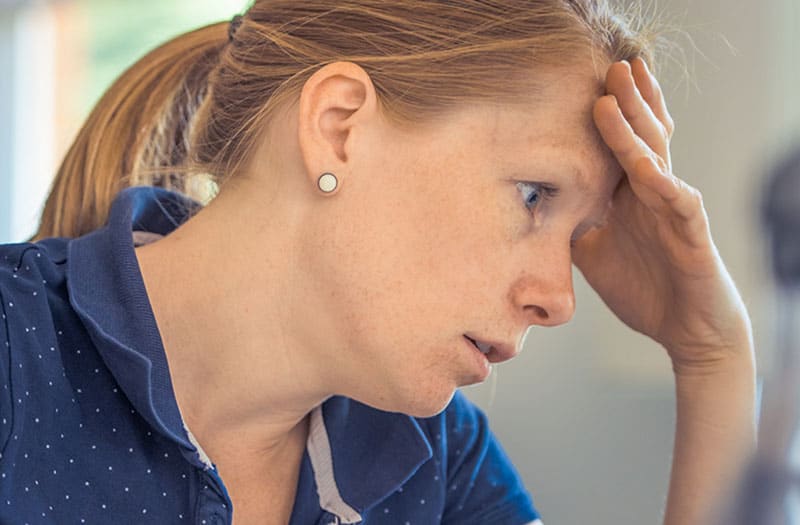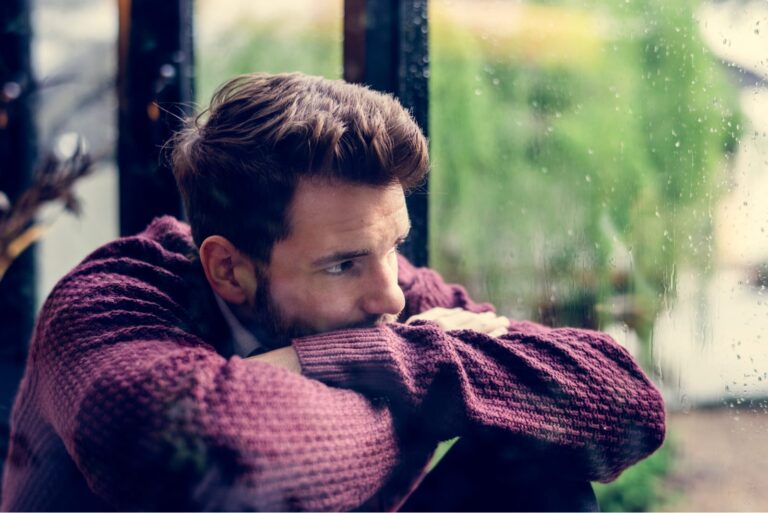Things That Girls With Daddy Issues Wish You Knew Before You Judge Them
Girls with daddy issues – a phrase we hear so often these days, if I didn’t know better, I’d be convinced it must be some new phenomena that happen to the women in modern society exclusively.
Luckily, I do know better.
Girls with daddy issues is an informal phrase used to describe the women who have a tendency to like and engage in relationships with older men or men who act like a father figure, due to psychological challenges resulting from an absent father or an abnormal relationship with their father.
And it’s existed for a very long time. The longing for a good father has been a recurring theme throughout history.

And it’s not a surprise if you consider the importance of father figures in the past, starting from religious concepts of fatherly Gods through to the view of the father as the head of a family.
So, if you thought something’s utterly wrong with you, don’t worry – it’s something that happens to many women.
It happened when you were a little girl and it’s happening now.
You see your friends and their dads have beautiful relationships filled with very vocal love, hugs, and affection, thankful captions on Father’s Day…and feel so hurt.
You never had any of that. In fact, you had quite the opposite.

Instead of having someone to protect you and hold your hand through life, you had to figure it all out by yourself.
That’s a heavy burden for the child you were and the woman you are now. You never had the attention you needed.
And deep down you never stopped being that child. A wide-eyed child who just wanted to be loved and cared for.
Instead of having a safe harbor where nothing could touch you, one person that could be your shield, you were left alone and exposed.
You grew up never knowing how to set boundaries, you grew up in constant fear of being abandoned for just being yourself.

What else could the child you once were have done to make her daddy leave? Your innocent child-mind convinced itself that it was your fault your daddy didn’t want you.
That’s the most painful wound, and one that shows no signs of healing.
In every relationship, you crave the love you’ve never received.
You just want to be safe and wanted for who you are. Why is that so much to ask?
Having someone to have your back and protect you, isn’t that what love’s about?

Instead of a father, you had a failure who made you think you were a failure.
Knowing (and feeling) all of this, we can’t ignore the fact that fathers play a huge role in an adult’s life and a kid’s life especially.
Why? Let’s look up the facts first.
Having an involved father who takes the time to listen to you, shows up for important events, shows an interest in your life, and provides emotional support has been proven to make women less likely to drop out of school, be involved in high-risk behavior and unrestricted sexual behavior, and more likely to be healthier with higher-paying jobs and stable relationships.
If you have a father like this, you’re one of the lucky ones.
If you don’t, keep reading, as I assure you things don’t have to be so doomed once you understand them.
It’s going to be hard either way, but knowing where you’ve come from makes a difference.

In psychology, there’s something known as the Electra complex, which describes a period in a girl’s life from three to six years old when she subconsciously displays a form of competition with her mother for the possession of her father.
This is where the tendency to compensate for the lack of a father’s attention comes from.
Maybe you’ve been called clingy or needy before and you know hearing that doesn’t feel good – it feels awful.
The feeling of clinginess is accompanied by a deep sense of feeling flawed and just not feeling whole – like you are missing something that other people have.
This feeling often comes with low self-esteem because you constantly feel a lack of something and less than others.
It’s true, you need attention, but isn’t that a normal reaction after literally being abandoned by your own parent?

Things get more complicated when we talk about ways of getting attention.
Growing up without a father’s attention often translates later in life into an excessive need of male attention.
That’s where many stereotypes arise and are affirmed and widespread in pop culture nowadays.
While daddy issues are neither ridiculed nor romanticized in books and movies, mommy issues are mentioned and talked about far less.
I guess it’s because women traditionally identify as more vulnerable and are prone to expressing their feelings more openly and therefore admitting when they have issues, and the fact that society in general objectifies and oversexualizes women more than men.
That’s why we need to break the myth of the girl with so-called major daddy issues.
I decided to list a few popular stereotypes surrounding the term and give an explanation behind said behavior.

Dating an older man. The most obvious thing.
While this is not a rule, it can happen. When younger women are seen with older men people automatically assume it’s because of some serious daddy issues.
And it’s not a big surprise, honestly. Older men, unlike most younger men, are more experienced in life, and often have their life more assured both materially and emotionally.
Therefore, a woman who constantly seeks safety and subconsciously longs for a father-like figure may be attracted to older men. In her eyes, they represent a sense of security.
Inclination towards aggressive sexual behavior. This is another big stereotype that has been tied to the term.

Supposedly, an inclination towards rough sex is due to the need to satisfy both her man’s needs and her fear of not being good enough at satisfying a man.
Other than that, it could be also tied to creating a defensive stance towards men in general that results in a denial of her emotional needs and puts an emphasis on aggressiveness in overall behavior that also translates into sex.
Plus, it could represent an urge to control something that belongs to her only because she often feels out of control in other areas of life. There are many possible reasons and they are not always connected to the issue.
Mental issues (psycho girlfriend stereotype).
Unfortunately, the media has popularized this stereotype of a young girl having daddy issues and some kind of personality disorder that makes her incapable of having healthy relationships.

She’s portrayed as a jealous girl with trust issues that goes crazy even at the slightest sign of her needs being ignored, and unfortunately that portrayal has been trending lately.
That’s very damaging for any woman going through this type of trauma.
It’s not unusual for a girl with a fear of abandonment to have trust issues.
Almost everyone who has been abandoned, abused, cheated on, or lied to has trust issues.
It’s not something you can choose to stop having. It’s an issue that has to be addressed and dealt with, the same way as every other.
Body modification. Some people see tattoos, piercings, and other types of body modification as warning signs that a person has some type of attention problem, and often, if it’s a girl – daddy issues.

That’s according to many articles, comments, forum threads, and even memes.
These stereotypes are nothing but damaging to a person who’s dealing with these issues.
While it is true that a person has to face their own issues and fears alone, there are always healthier ways to do this and the people who care for them, such as their significant other, a friend, or family member can help them.
So, how should a woman with daddy issues be treated in a relationship?
Here’s some dating advice for men dating a girl with some of the above described behaviors and emotional profile that could solve any potential relationship issues:
Prove to her that good men exist.

Women with this type of issue might have had a few boyfriends that mimicked patterns she had in the relationship with her father and that means they probably weren’t the best example of a caring man.
She needs a man who can show her that he can be good, loyal, accountable, and capable of understanding with his words and actions. Someone who can tell her she is needed and wanted often.
Give her the attention she needs. It’s no secret she needs attention.

That shouldn’t be a problem for a man who loves his partner.
Showering her with attention and saying words of affirmation are going to reassure her and make her feel calm and safe. Do things for her she used to do alone.
Show her she can count on you.
Don’t push her. She has been through a lot.

That means she might need more time to start doing things or deciding whether she wants to do something or not.
That includes commitments such as marriage.
If she comes from a broken home, there’s a possibility she’s scared of ending up like her parents.
That’s the last thing she wants – it might even be triggering.
Don’t take advantage of her. Don’t exploit her insecurities or objectify her.

That’s the worst thing you can do.
Although it’s advisable to compliment her on her looks, make sure she always knows you care for her as a person and your partner.
She needs a constant reminder she is good enough as she is.
Educate yourself about the issue. Read about the background of this issue.

Try finding psychological explanations and articles that help to resolve and understand this type of trauma.
There’s a lot to learn about human behavior and it’s beneficial to any relationship out there, not just this type.
Recognizing your partner’s triggers can provide a lot of understanding and lessen the fights that occur from not knowing about them.
Be patient. Don’t pay much attention to sudden outbursts when you know their background and rather be accepting and calm.
Fighting overreacting with aggressive behavior is a big no. Overreacting can be redirected with calm behavior, a cool head, and support.

Show her what unconditional love is. The most important thing of all.
Show her enough love – show her unconditional love, love without motif, without the need to prove anything or the need to fulfill expectation: just pure love.
To wrap this whole theme up I wanted to say the following:
If you identify and recognize yourself as one of the girls with daddy issues you probably know it’s because of your complexity, your undirected passion, and stubbornness, but what you also know is that behind all of that there’s a loving and deeply caring person who is deserving of a healthy partner and a fulfilled life.

Once issues are addressed and the person starts to act accordingly, many of the previous fears and traumas start to vanish.
Your condition doesn’t have the power to define you as a person. It’s part of you, but not all of you. There’s much more to you than your issues.
I encourage you to drop your conviction that tells you you’re somehow the problem and welcome a new conviction that tells you – you’re what you are, with or without man-made labels and that will always be more than enough.







